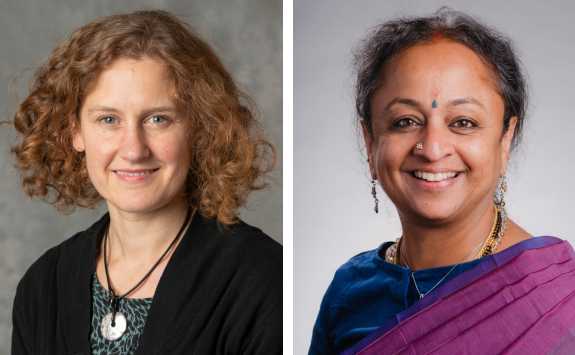Standing Conference on Organizational Symbolism (SCOS) 2024
Date: 9 to 12 July 2024 | Time: 9:00 onwards
Location: Newcastle University Business School | Get directions
- Guest speakers
The Standing Conference on Organizational Symbolism (SCOS) is a prestigious annual international conference. It takes place in different countries and hosting universities. In recent years, the conference has taken place in cities such as Paris, Copenhagen, York, Tokyo, Rome, Uppsala, Nottingham and Utrecht.
This may include examining and critiquing the idea of electricity as a form of power, as a form of control, as a form of communication, and as a form of transformation.
Energy can be conceptualised both as generative, a stimulus, and destructive, an annihilator. Such explorations and provocations seem ever more relevant at this moment in our existence with the recent explosion of AI which is more sophisticated and capable of performing a wide range of tasks that were once considered exclusive to human intelligence.
Guest speakers
Our guest speakers this year include:
-
Hannah Knox, Lecturer in Digital Anthropology and Material Culture at University College London
-
Supriya Nagarajan, founding member and CEO of Manasamitra, a UK based arts organisation
You can find out more about them and their work below.

Hannah Knox
ElectriCity: Re-imagining Urban Life in Transition
Electricity is an invisible but potent force which has profoundly shaped the form and function of contemporary cities throughout the 20th and 21st centuries. Now, as the transition away from fossil fuels gathers pace, electrification is once again taking centre stage in the question of who and what a city is for and how it should function.
In 2018 I helped curate a walk through the story of Manchester’s electrical past, in order to open up novel conversations about what the city’s electric future could and should look like. In this talk we will retrace our steps through Manchester’s electrical past, present and future, to consider what it means to think of the city as a form of electric organisation. What does electricity bring into view? What relations does it privilege? What challenges does it pose? What concepts and languages does it require? And how are these being reworked in the context of contemporary energy transitions?
Biography
Hannah Knox is Professor of Anthropology at University College London.
Her research focuses on the relationship between infrastructures and social change through ethnographic studies of projects of technical transformation with a particular focus on climate change, energy and digital technologies.
She has published several books including:
- Roads: An Anthropology of Infrastructure and Expertise (2015)
- Ethnography for a Data Saturated World (2017)
- Thinking like a Climate: Governing a City in Times of Environmental Change (2020)
- Digital Anthropology (2021)
- Speaking for the Social: A Catalogue of Methods (2022)
She is currently working on a new project, looking at the relationship between energy, data and social change in Net Zero Britain.
Supriya Nagarajan
What does electricity mean to me as a performing musician?
Through this discussion, I want to travel on a personal journey, tracking my early childhood memories of traveling a steam train in rural India through the pitch dark, watching a million fireflies, to recording in a studio on the 67th floor amidst blazing city lights in New York.
Electricity has transformed my life and that of million others over the past century and, although I miss the fireflies, as an artist I cannot imagine life without it.
In 2021 I released an album- "Posse of Fireflies" - that queries the effects of light pollution. But on the other hand, I have a traveling light and sound installation/performance that celebrates lullabies from across the world.
As an artist I am both fascinated and repelled by the impact of electricity on climate change. I would like to discuss this and much more, and also share a special piece of music that connects me to a spectacular lightning display in Queensland during my recent visit.
Biography
Supriya Nagarajan has a unique voice in the British music scene. She creates concept driven immersive music productions that push boundaries and encourage thought.
Her music is a blend of her South Indian classical traditions and Western contemporary styles. She has released albums under the Manasamitra label, Tokuroku and Come Play With Me. Her works like Lullaby Sonic Cradle, Sound of Tea and Bollywood Jazz project have won critical acclaim and earned her a niche reputation in the UK and beyond.
Supriya is regularly supported by PRS Foundation, Jerwood Foundation and Arts Council England. She has performed across the world in various venues and festivals, such as:
- Harpa in Reykjavik
- the Royal Albert Hall
- WOMAD
- QEH Southbank Centre
- Casa Da Musica
- the Zee Jaipur Litfest music stage
Supriya's latest work is "Meltwater". It highlights melting glaciers through a specially created music piece is on tour across the UK and Europe.
Gala dinner
SCOS 2024 will also include a gala dinner. This will take place at Newcastle upon Tyne's Wylam Brewery, located within the Palace of Arts in Exhibition Park.
Organising committee
- Dr Victoria Pagan (Lead Convenor)
- Ingrid Fairfax-McMaster
- Dr Jenny Davidson
- Dr Komal Kalra
- Dr Kristina Humonen
- Dr Sara Zaeemdar
- Sarah Carnegie
- Dr Susan Addison
- Professor Anne-Marie Greene, University of York
- Dr Carolyn Hunter, University of York
- Dr Saoirse O'Shea, Open University
About SCOS
SCOS is a global network of academics and practitioners, formed in 1981. We hail from a hugely diverse range of disciplines and professional backgrounds.
We began as an autonomous working group of the European Group for Organizational Studies. We became an independent academic venture in 1984 with the Lund Conference, with 2024 marking our 40th anniversary.
Our central interest is in the interlinked issues of organizational symbolism, culture and change. This is articulated in the broadest possible sense and informed by our commitment to interdisciplinary and transdisciplinary understandings of organization and management.
Our work draws, inter alia, from:
- organisation studies
- social anthropology
- management
- cultural studies
- media studies
- philosophy
- history
- politics
- social psychology


